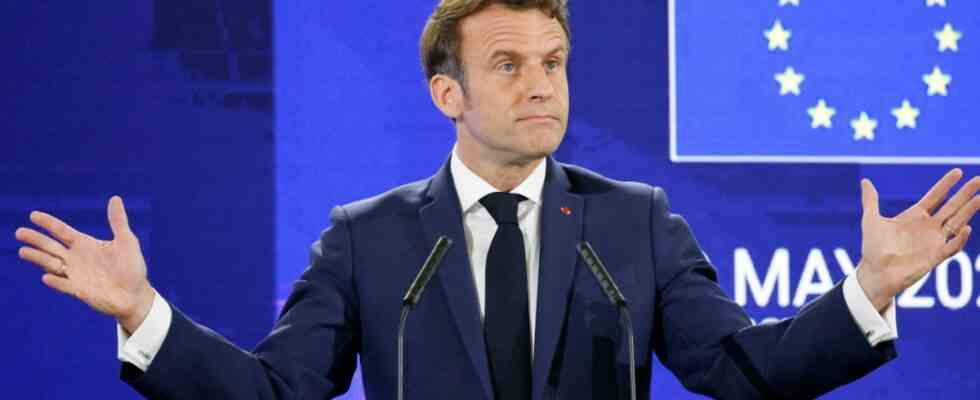There is no dispute about the analysis of the situation. The European Union has faced “several crises and unprecedented challenges” since the current version of the Treaties came into force in 2009, says the resolution that the European Parliament passed with a large majority at the beginning of June. Banking crisis, the integration of millions of refugees, the corona pandemic and now Russia’s war against Ukraine – the EU members have been busy for years struggling through crises from week to week.
MEPs are convinced that the treaties must be revised so that the Union can react “more effectively” to these crises. They are therefore calling for a convention to be convened in accordance with Article 48 of the EU Treaty. This puts governments under pressure – and this is where the argument begins.
The European Parliament relies on the demands that 800 randomly selected citizens, ministers and representatives of the EU Parliament and the national parliaments worked out at the “Conference for the Future of Europe” – and they are comprehensive. The resolution calls for an end to the unanimity principle in certain areas – for example when imposing sanctions. In foreign and security policy, the so-called “passerelle” clause is intended to switch to qualified majority voting. The EU is to be given additional powers in health policy and in the areas of energy, climate, defense and social and economic policy.
Many are already reassuring: the EU should now worry about the war rather than itself
After the final report of the future conference was handed over in Strasbourg on May 9, the MEPs hurried. They wanted to demand the convention as long as France held the EU Council Presidency. Because the future conference was at least one of Emmanuel Macron’s favorite ideas – and so there was hope that the French president could ensure that 14 heads of state and government agree to the convening of a convention at the EU summit this week. However, it was already clear that this would not happen before the Europe Ministers arrived in Luxembourg on Tuesday.
Both Paris and Brussels can sense that this project is no longer a priority for Macron. A first discussion of the EU ambassadors was later summarized with “No member state spoke in favor of convening a convention” – and this was also the case in Luxembourg. The governments are in the process of forming an opinion, said France’s Europe Minister Clément Beaune before the meeting. “I warn against discussing treaty changes, because that deprives us of the resources to solve the real problems,” said Denmark’s Foreign Minister Jeppe Kofod.
Finland’s Tytti Tuppurainen also calls for “our brightest men and women” to focus on helping Ukraine or fighting climate change. The Scandinavians are among the 13 EU countries that put it on the record back in May that they would reject “without hesitation” treaty changes.
To abolish the principle of unanimity, unanimity is needed
But restrained tones also came from Luxembourg and Germany. It is important for Minister of State for Europe Anna Lührmannto give citizens “feedback” on their proposals and to use the future conference as a “fountain of youth” for the EU. The Green campaigned for institutional reforms, but also said that the issue of a convention was “not central”. The consensus seems clear: the EU members do not want to be pushed, but want to concentrate on implementing those proposals from the future conference for which the treaties do not have to be changed.
EU Commission President Ursula von der Leyen has announced that she will make proposals in her “State of the Union Address” in September. According to EU diplomats, the rejection is so great because a simple majority of the heads of state and government is enough to start a convention – but in order to change the treaties, all 27 must agree, including Viktor Orbán. In addition, referendums would probably be necessary in countries such as Ireland, France or the Netherlands. “Nobody can want to start a project that is going to hit a wall in the foreseeable future,” says an insider.
Nobody in Brussels is surprised that the EU Parliament is calling for a convention. It wants more power, for example by demanding the right to introduce laws. If the governments block, many MPs in the 2024 European elections can present themselves as fighters for more Europe and criticize President Macron or Chancellor Olaf Scholz for being hesitant. Because the crises, from Corona to high energy prices, will not go away. The debate on the convention reminds Brussels that the European election campaign will begin after the summer break.

